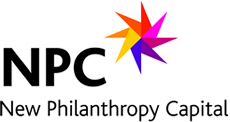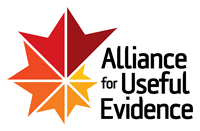Resources » Format » Training and Courses
External Databases and ResourcesToolsTraining and Courses
External Databases and Resources
The Collective Impact Forum is an initiative of FSG and the Aspen Institute Forum for Community Solutions. It is a place to find tools and training around collective impact, as well as an expanding network of like-minded individuals.
The Collective Impact Forum is an initiative of FSG and the Aspen Institute Forum for Community Solutions. It is a place to find tools and training around collective impact, as well as an expanding network of like-minded individuals.
Training and Courses
The M.A. in Social Impact from Claremont Lincoln University teaches the capacities needed for mindful leaders—particularly, though not exclusively in the social and civil sectors—to envision, implement, and adapt efforts that generate positive and sustainable impact within and/or beyond their organizations and communities.
The Collective Impact Forum is an initiative of FSG and the Aspen Institute Forum for Community Solutions. It is a place to find tools and training around collective impact, as well as an expanding network of like-minded individuals.
Koç University Social Impact Forum, founded in November 2012, aims to foster social innovation through education, research and collaboration. KUSIF is structured to be “the Research and Practice Center” to create social impact by enriching future leaders, academia, and staff with experimental learning, advanced knowledge, and valuable networks. It is “the Social Innovation Catalyzer” for CSOs, business and community to create social impact by helping social organizations tackle current challenges and by engaging businesses more productively with the community through support networks, effective M&E tools, and ongoing development resources.
The Wharton School at the University of Pennsylvania’s undergraduate degree program offers business and more — an innovative program that combines business and liberal arts on one Ivy League campus. Social impact courses for undergraduates span areas such as health care management, finance, management, economics and public policy, legal studies and business ethics. A flexible schedule allows students to pursue academic interests within Wharton and beyond.
Wharton’s undergraduate program also offers a secondary concentration in Social Impact & Responsibility, housed in the Legal Studies and Business Ethics department.
Courses include:
- Corporate Responsibility and Ethics
- Health Care Quality and Outcomes: Measurement and Management
- International Business Ethics
- Knowledge for Social Impact — Analyzing Current Issues and Approaches
- Social Impact & Responsibility
The Charities Evaluation Services (CES) are leading experts on providing high quality training to help you to develop your work on monitoring, evaluation and quality improvement. CES offers a variety of training courses including courses on PQASSO, Theory of Change, outcomes, impact measurement and practical skills.
The Fund Raising School, an international leader in fundraising training and professional development, and the School of Public and Environmental Affairs at Indiana University, a nationally ranked leader in nonprofit management education, offer the Program Evaluation for Mission Impact course at Indiana University-Purdue University Indianapolis (IUPUI). It is one of four required courses for the new Certificate in Nonprofit Executive Leadership. This course focuses on the techniques and application of evaluation methods to assess the effectiveness of nonprofit programs.
Cornell University offers various courses that focus or touch on social entrepreneurship or innovation. The list includes Social entrepreneurs, innovators and problem solvers, Social Justice and the City: Preparation for Urban Fieldwork, Making a Difference: By Design and Leadership in Nonprofit Environments
The Australian School of Business at the University of New South Australia offers a Graduate Certificate in Social Impact focuses on building the professional capacity of social managers and entrepreneurs of the future, across the corporate, government and third (not-for-profit) sectors, enhancing their capacity to lead organisations creating social and environmental value and to operate in a changed cross-sector social landscape where the dynamism of the market is also directed at social innovation.
The Department for Continuing Education at the University of Oxford offers an online and distance learning course in Social Entrepreneurship. Social entrepreneurs are gaining international attention motivated by the desire for change and to see the world as it can be, not as it is. Students in the course will learn how social entrepreneurs have developed creative solutions to address social problems. The intention of the course is to develop knowledge, appreciate of the role of social entrepreneurs that create social change, deepen students understanding of the world around them, and to inspire you to use your skills and knowledge to be as Gandhi said, ‘the change you wish to see in the world’.
Essex Business School at the University of Essex offers a Masters in Social Entrepreneurship. It responds to the increasing demand of socially-oriented entrepreneurs whose missions go beyond earning profit. Social entrepreneurs do not ignore pressing social problems such as poverty, disease, over population, war and terrorism. They employ their entrepreneurial characteristics to develop innovative solutions to make society a better world for life.
By studying this course, you will: enhance your theoretical perspective on social entrepreneurship; develop innovative approaches to addressing persistent social problems in society; learn from distinguished academics and practitioners with substantial professional and social sector experiences; work closely with social entrepreneurs locally or internationally; and participate in the unique Social Venture Academy (SVA) to develop and pitch ideas about potential ventures to social business experts.
Cass Business School at City University London offers PGCert/PGDip/MSc in Grantmaking, Philanthropy & Social Investment. There is a growing recognition, that in addition to a common body of knowledge all managers need in order to succeed, there are critical specialist areas for managers which provide a sound understanding of all aspects of their work and a springboard for further career progression.
This charity degree course is the first of its kind in the UK and Europe and reflects the increasing interest in funding and the need for transparency and accountability. Students will develop a clear understanding of the practices and principles of funding.
Macquarie University in Sydney, Australia offer a Postgraduate Diploma of Social Impact Assessment. modules include Social Impact Assessment and Cross Cultural Negotiation, Urban Social Impact Assessment, Methodology in Local and Community Studies and Human Geography Research.
At the University of Westminster, the Master of Business Administration of a module in Social Entrepreneurship. This module requires students to use our experience and skills learnt on our MBA to solve real life problems in real life situations, rather than simply testing theory. It is supported by a UK based charity called The Great Generation, that identifies an overseas organisation that are community-driven and tackle real needs, and that require the support of volunteers.
There is a growth in the number of entrepreneurs starting businesses with social and environmental purposes at their heart. This MA from Goldsmiths, University of London, enables you to develop a critical understanding of and practical insights into modes of social enterprise. This Masters programme, with an exit route at Postgraduate Diploma level, is aimed at people seeking to either:
- develop a sustainable model for a new or existing social enterprise (for example, a business relating to a ‘product’ or ‘process’ arising from your practice, to community, or to a form of ‘expertise’, ‘consultancy’ or ‘knowledge’)
- understand how to create the infrastructure and environment for new social enterprises to flourish in a variety of contexts (for example, city, rural, regional or national)
Created for professionals in nonprofit organisations, this graduate-level certificate from Humphrey School of Public Affairs at the University of Minnesota offers specific knowledge and skills related to human resource development, organisational evaluation, finance, conflict resolution, and decision-making. The Nonprofit Management Certificate curriculum is designed for individuals who do not have formal training in the business aspects of managing a nonprofit organisation.
The University of Delaware offers a Nonprofit Management Certificate Course. Started in 1990, this 16-week course teaches participants how to handle the key management challenges facing nonprofit organisations: Strategic planning, technology, financial management, human resources, fostering leadership, lobbying and advocacy, designing and evaluating programmes, marketing and fundraising. To date, over 370 people have successfully completed the Nonprofit Management Certificate Course. This course runs in the spring (February-May) and meets each Thursday (8:30 am-4:30 pm).
ESSEC is one of the foremost business schools and Grandes Écoles in France and one of Europe’s top business schools. At ESSEC IIES (Institut de l’Innovation et de l’Entrepreneuriat Social), training is offered in social impact measurement as well as various programmes relating to analysing the social impact of social enterprises.
The Verbandsmanagement Institut (VMI) at the Universitat Freibeug/Schweiz in the Czech Republic offers an elective module in Performance Measurement in Nonprofit Organisations, which provides an overview on theories and concepts of performance management in private NPOs.
The Center for Philanthropic Studies at the University of Amsterdam conducts research and educates professionals in all areas of the Dutch philanthropic sector. Since 1995, the Center has been the leading unit for research on philanthropy in the Netherlands and in Europe. The Center offers postgraduate courses in Philanthropic Studies
The Erasmus Centre for Strategic Philanthropy (ECSP) at the Erasmus Universiteit Rotterdam offer undergraduate and postgraduate courses, including in Corporate Social Responsibility (CSR) and Non-Profit Management, and Effective management of philanthropic “NGO” organisations.
In January 2009, the Centre for Nonprofit Management at the School of Business, Trinity College Dublin, in association with Social Entrepreneurs Ireland, launched the Initiative on Social Entrepreneurship – a unique and innovative programme with the primary purpose of creating an intellectual ‘home’ for research, education and dialogue on social entrepreneurship in Ireland. The Centre offers courses on nonprofit organisation and management and social entrepreneurship and social innovation.
The Social Impact Assessment course from the University of Johannesburg Sociology Department is a structured, accredited short course in Social Impact Assessment. It is offered both as a module as part of a structured MA and as a certificate course and provides training in social and economic impact assessment, and it is the only degree of its kind in South Africa.
INSEAD Business School offers an Executive Master in Consulting and Coaching for Change, a program about human relations and behaviour applied to management. Aimed at HR professionals, coaches, consultants and executives seeking new ways to make an impact on their organisation, this programme integrates business education with a range of psychological disciplines, and enables an understanding of yourself and others at a fundamental level – and to use that knowledge to create more effective organisations.
The Centre for Social Impact is a collaboration of four universities: the University of New South Wales, Swinburne University of Technology, The University of Western Australia and The University of Melbourne. Their mission is to improve the delivery of beneficial social impact in Australia through research, teaching, measurement and the promotion of public debate.
The ‘how to’ training modules from Better Evidence for a Better Start (BEBS) at Dartington describe how to apply some of the key concepts to develop a strategy for the Better Evidence for a Better Start project. The purpose of this training is to provide local coordinators with the information and skills needed to develop a strategy for their areas. The modules were presented by the Social Research Unit at the ‘how to’ training event on the 22nd November 2013.
The six modules in this training are:
- how to develop a strategy
- how to interpret the Area Wellbeing Profile
- how to interpret the ‘What Works’ data
- how to chart resources
- how to review policy
- how to monitor implementation & outcomes
This is a presentation that was was delivered by Heléne Clark, ActKnowledge and Andrea A. Anderson, Aspen Institute Roundtable on Community Change at the American Evaluation Association in November 2004. The presentation explains Theory of Change (TOC) and the difference between TOC and Logic Models.





